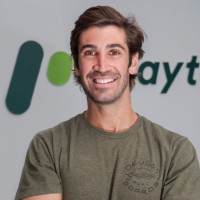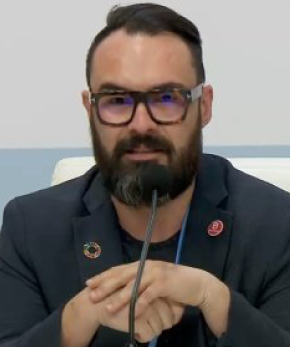In the context of Russia’s war on Ukraine, many VCs have turned their attention to the crypto space, with $4 billion poured in the last three weeks of February and another $400 million to startups in the sector. Nevertheless, what will be the impact of the Russian invasion of Ukraine for the VC industry and the startup ecosystems in Spain and in Europe?
According to Monte Davis, CEO at Demium, in times of uncertainty people often choose to delay decisions of new investments or acquisitions. “With the war between Ukraine & Russia, uncertainty has certainly increased. There are risks of even higher inflation and valuations are being impacted. This will directly have an impact on the nature, volume, and terms of the transactions done by the industry”, points out Davis, but at the same time agrees that there are always opportunities that arise.
The war is already making a shift in the geopolitical landscape, and the big changes are going to be seen not only in the energy and defense sectors. “When these changes take place, there are always opportunities for startups to take advantage of the new landscape”, adds Davis.
Novobrief spoke to some Spanish startups to find out how the invasion of Ukraine and the ban on Russia have had consequences on both their operations and their plans to raise money.
Views in conflict

Pedro Clavería is the Co-CEO and Co-Founder of Playtomic, a Madrid-based sports booking app and SaaS for sports venues that raised €56 million last December. For him, the war has generated a lot of uncertainty in the stock markets and because of that, he thinks there is more interest in investing in startups and tech. “Even though we are not in a round, I‘ve noticed more attention going to tech investments than in previous years”, comments Clavería.
José Lindo is Co-Founder and Head of Impact of ClimateTrade, a blockchain-enabled climate marketplace that raised €7 million this January. While he considers the war a terrible thing, he also thinks that it’s not going to affect their next financing round. “Climate change still is the major crisis for humanity. Our mission is to decarbonize the planet. The mitigation and adaptation to climate change is the ultimate resistance”, says Lindo. He adds that if we don’t maintain the ambition to fix the environmental problems of the world, the next wave of refugees and deaths are going to be climate-related. Although Climate Trade and its mitigation projects don’t have direct exposure to the war or to the sanctions on Russia, Lindo says that they are closely analyzing the impacts on the economy in Germany and other northern European countries like Norway and Sweden.

Sonia Bentué is the Commercial Director of Unlatch, a French proptech with offices in Madrid. She figures that the conflict is not going to put full brakes on the next financing rounds. However, she is convinced that there will be repercussions in the investment announcements.
Nacho España is Co-Founder and CEO of Kronte, a Málaga-based platform for amateur e-sports tournaments. In his sector, things are not that different from when the startup was born, in 2020 at the brink of the pandemic. Even with the emerging crisis then, investors kept investing. So he feels positive that investment remains the same now as well.
The day after tomorrow
What additional factors are going to be important in the current scenario of war, inflation, and increasing interest rates? In times like these, it is very important to understand the size of the company’s talent gap and its strategy to close it, according to Monte Davis. “Top talent is always in demand and finding good people is one of the biggest challenges of all startups. However, in periods of uncertainty and particularly in periods of high inflation, the size of this challenge increases. The best people can command even higher increases in salaries and lots of good people prefer not to jump to the next project just yet”, Davis adds.
According to Pitchbook, there are at least 158 Ukraine-headquartered companies that have received VC or angel backing, and almost 300 such companies with a secondary office in the country.
Energy will also play its part. Lindo comments that a “tsunami” of liquified natural gas (LNG) is on its way. This will be a dramatic blow for decreasing and offsetting emissions objectives, and it will continue to be detrimental until more renewable energy can be created. “Hopefully we will see more green energy in underdeveloped countries who can receive funds from LNG companies and who will see their income grow radically”, comments Lindo.
Solidarity on the rise
War is always a tragedy and its consequences surpass all areas of life, including business. Needless to say, Ukraine has been a country that has had a tremendous part in the development of the tech industry. Not only is it a nation full of highly educated tech professionals, but it has also been a top destination for IT sourcing. According to Pitchbook, there are at least 158 Ukraine-headquartered companies that have received VC or angel backing, and almost 300 such companies with a secondary office in the country.
The whole Spanish ecosystem is showing huge signs of solidarity towards Ukraine and its people. Clavería says that they have some colleagues, mostly developers, who work remotely from Ukraine and Russia. Playtomic is helping them to get out of their countries. Also, they are considering initiatives to hire more engineers who have recently escaped from those countries. Even while uncertainty reigns, it is clear that all the actors in the startup ecosystem are pushing for the end of the war.
Credit: Source link


Comments are closed.